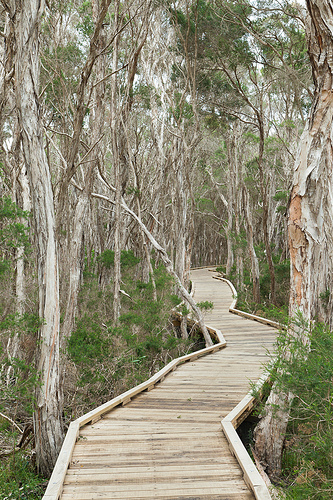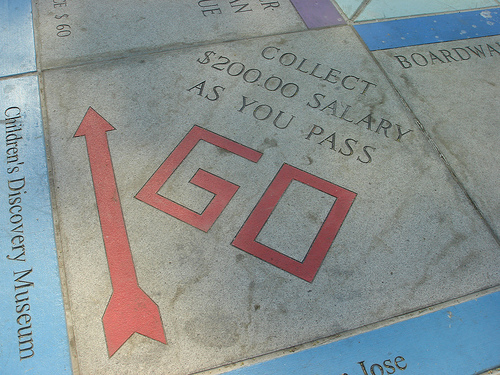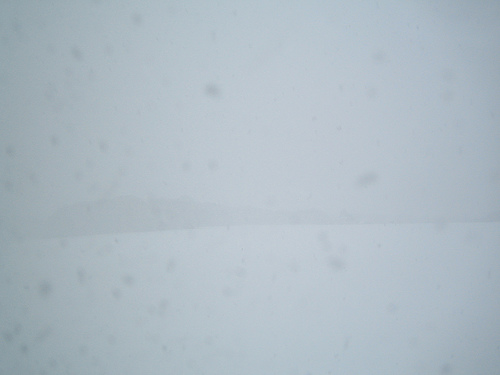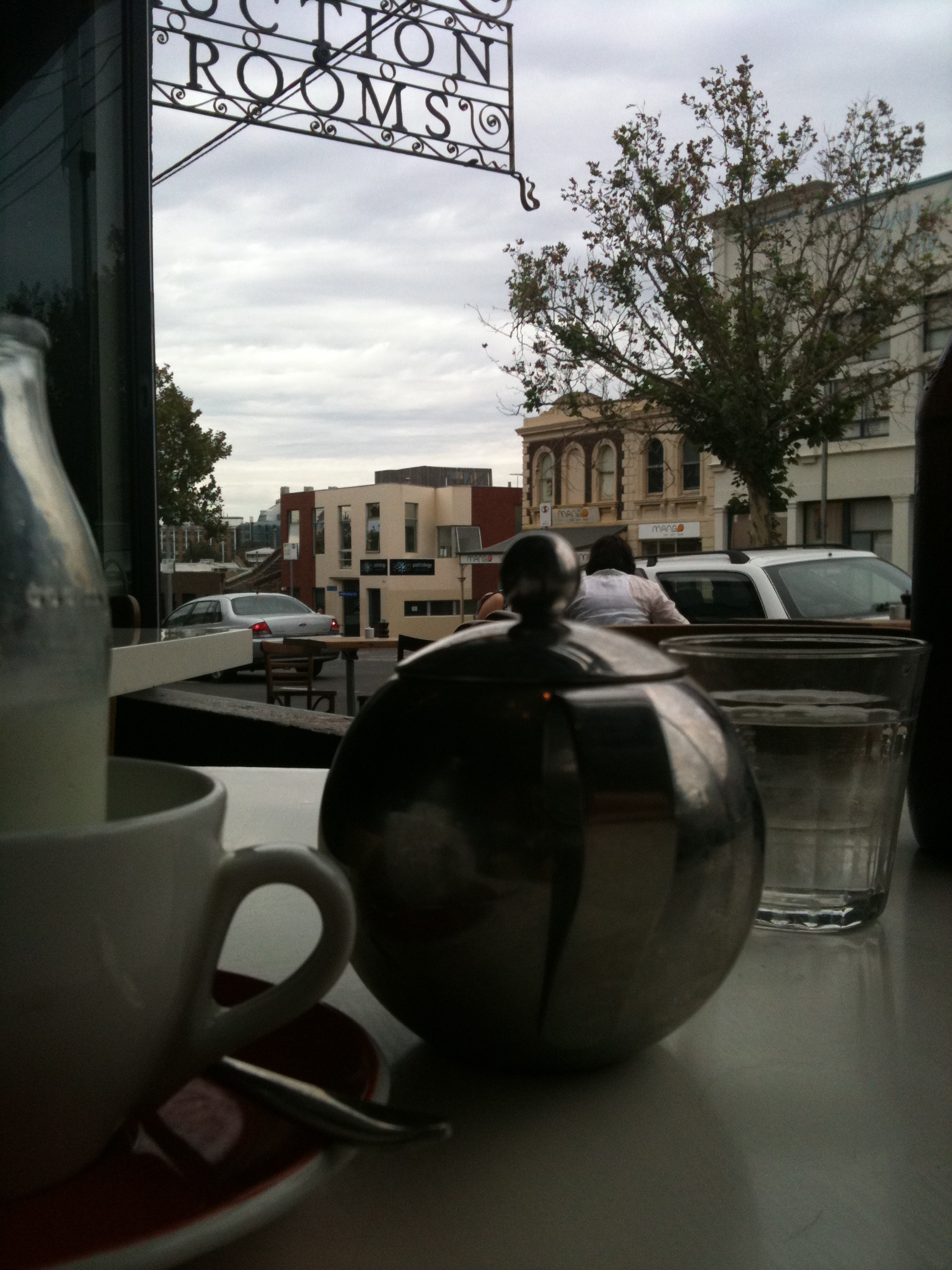If I stop typing now there is relative silence. There’s no editor talking shop while pacing through my room. No fellow writers sit nearby. I can’t overhear someone conducting a difficult phone interview the in the next cubicle. I don’t get ongoing circulars to all staff about new research tools or resources. I can’t ask a respected sub a quick question about grammar. I can’t readily get a colleague to help me find the right structure or lead. Sometimes this silence is golden. All I can hear is the wind in the trees, birds tweeting above and children playing at the nearby school. But other times – when the silence is due to my isolation and inexperience – it’s all too frustrating. It’s the silence that comes from not having the information, skills or expertise to move forward. It’s the silence that’s got me to thinking about the idea of a mentor.
With the downsizing of newsrooms and publishing houses more and more writers are working in isolation. ‘They want someone who can guide them long term [and who] they can turn to more than once,’ says Sally Williams, Marketing and Membership Coordinator at Writers Victoria. Williams runs Writers Victoria’s twice-yearly mentorship program. ‘When we open applications we get absolutely swarmed with people, and in between… we get loads of enquiries,’ she says. So it seems I’m not the only one interested in a bit of professional guidance.
According to Williams, the key to a successful mentor-mentee relationship is being prepared and totally clear about what you want to achieve. ‘Don’t just come into it and expect the mentor to be able to wave the magic wand and make things better. [Writers need to set] clear measurable short and long term goals that they can achieve.’
‘If we didn’t have that goal-setting process I could see the relationship falling into a weird, useless exercise in not much,’ says Samantha van Zweden, freelance writer, blogger and bookseller. She has a mentoring arrangement with writer, editor and reviewer Laurie Steed. Steed and van Zweden’s mentorship evolved organically from a professional association. But other writers find mentors by approaching directly or going via a program like the one at Writers Victoria.
One of the biggest challenges for all writers in mentorships is in meeting expectations says Williams. ‘A few mentors will really crack the whip and have expectations of what they think the mentee should achieve by the next meeting.’ Williams has often seen writers struggling to keep up. ‘The mentor offers the guidance but the writer still has to go away and do the hard yards,’ she says.
For van Zweden these hard yards are part of the benefits a mentor arrangement can bring. ‘That’s to do with accountability. Because I know there’s someone rooting for me, I want to reach that point. He won’t expect something of me that I can’t do,’ she says. So when Steed sets her a challenge she does everything in her power to achieve it.
Right now van Zweden and her mentor are working on preparing pieces for publication and stretching her multi-sensory descriptions. ‘He’s encouraging me to use all my senses and setting me specific exercises to work towards that.’ Steed has also helped her with goal-setting, improving her writing and pitching stories.
The Writers Victoria program involves six one-hour sessions. The first is an overview mapping expectations and goals. ‘From there each session is about looking at progress made and focusing on any weak spots that the mentor might identify in the work (or parts that the writer’s really struggling with),’ says Williams. Van Zweden and Steed take a less formal approach. They’re based in different states and prefer as-needs email correspondence.
A paid mentorship can cost anywhere between AUD$50 and $100 per hour depending on who your mentor is. (It’s $60 per hour in the Writers Victoria program). There are also mentors who aren’t paid, or who are paid in kind by mentees who undertake research or other tasks. Van Zweden says that it’s important for mentees to show their appreciation, ‘I know that it’s very generous for [Steed] to give me a mentorship in terms of time and brainpower. So I make [the tasks he sets] a priority, to show it the respect it deserves,’ she says. And let’s not forget that there’s something in it for mentors too. ‘By identifying problems in someone else’s work and helping them through it [the mentors are] learning about their own writing,’ says Williams.
In addition to providing guidance, Steed has helped van Zweden build her confidence and expand her perspective. He’s helped identify weaknesses in her writing and even at times, what music to listen to (they both write to music). He’s also acted as a champion for her work, and made relevant introductions. ‘The doors that are opened because he’s there… wouldn’t be there otherwise. I’m eternally flattered about how much he’s gotten behind what I do,’ she says.
All in all Williams says that mentorships hum along nicely, bringing benefits to all parties. ‘There have been a lot of ‘ah ha’ moments,’ says van Zweden of her exchanges with Steed.
‘Ah ha!’ - sounds like just the words to fill my silence of inexperience.
Help me raise funds for earthquake and tsunami victims
Last week I wrote a post about remembering 3/11. You can read more about my experience of the Japanese Earthquake and make a small donation to earthquake and tsunami victims by downloading my long form essay.
All royalties on sales this month (March 2013 inclusive) will go to the Japan Red Cross Earthquake and Tsunami fund.
More details are outlined on my website pepironalds.com/help-japan
If there’s anything you can do to help spread word of this fundraising effort I’d be most appreciative.





















